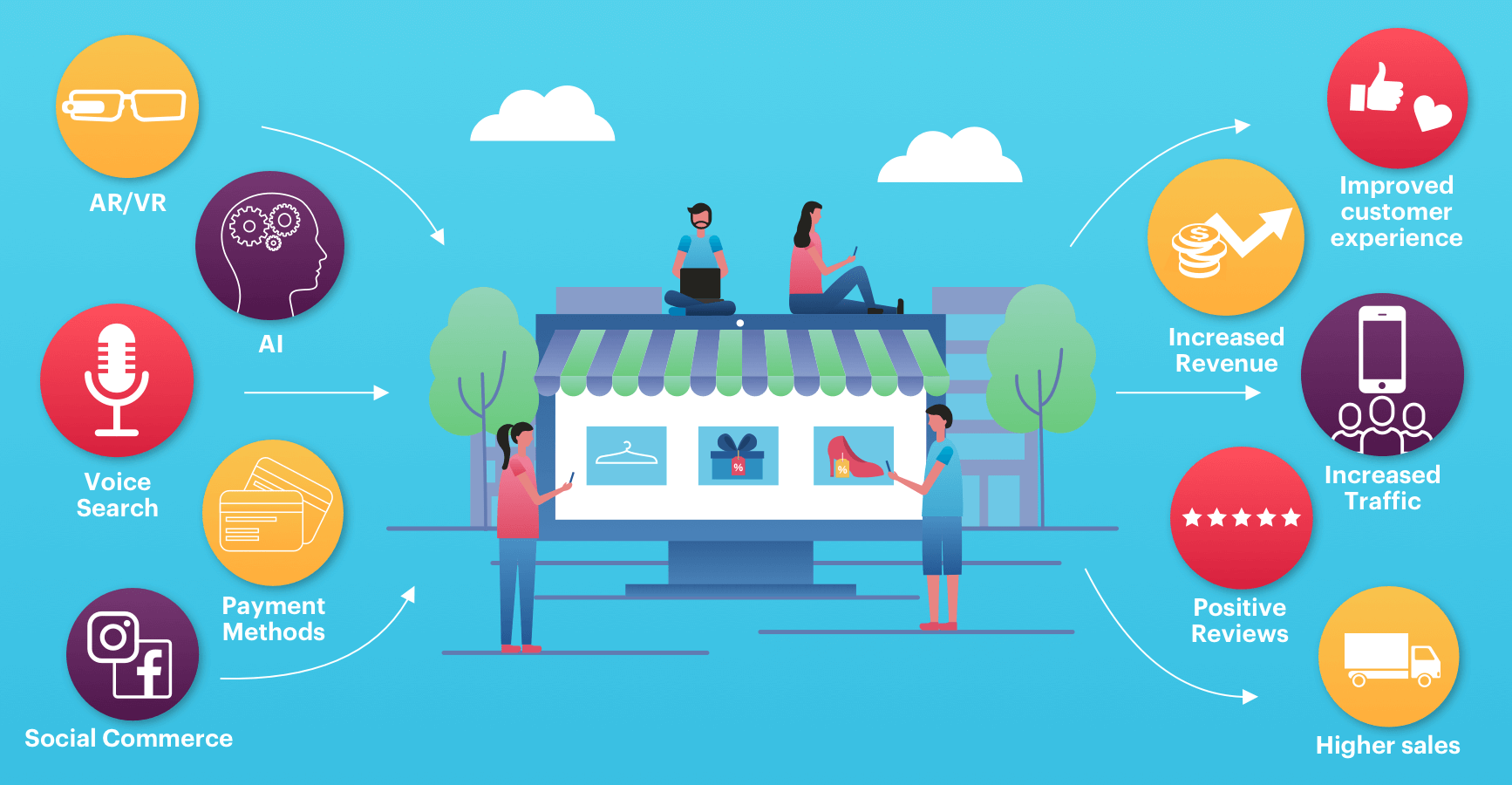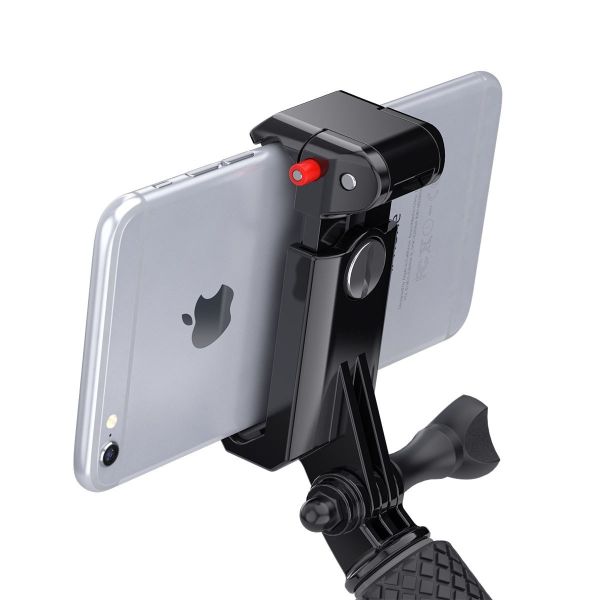The Rise Of Mobile Marketing In E-Commerce: Trends And Predictions

Table of Contents
The Growing Power of Mobile Commerce
The explosive growth of mobile commerce (m-commerce) is driven by two primary factors: increased smartphone penetration and a fundamental shift in consumer behavior.
Smartphone Penetration and Usage
Global smartphone ownership continues its upward trajectory, with mobile internet penetration reaching unprecedented levels.
- Mobile internet penetration: In many regions, mobile internet access surpasses desktop usage, making smartphones the primary access point for the internet.
- Average daily mobile usage: Users spend several hours each day on their smartphones, engaging with various apps, browsing websites, and interacting with brands.
- Regional growth: Developing economies show particularly strong growth in mobile adoption, presenting significant opportunities for e-commerce businesses. This surge in "mobile commerce" and "m-commerce" adoption is reshaping the global market.
Shifting Consumer Behavior
Consumers are increasingly integrating their smartphones into every stage of the buying process. This is fundamentally changing "mobile user behavior".
- Mobile research before purchase: Most consumers now research products on their smartphones before making a purchase, often across multiple devices.
- Mobile app purchases: The convenience of mobile apps has led to a surge in mobile app-based shopping, making dedicated mobile shopping experiences critical.
- Social media engagement: Social media platforms have become integral to the customer journey, with many purchases originating from mobile social media marketing campaigns. This highlights the importance of understanding and optimizing the "mobile shopping experience".
Key Trends in Mobile Marketing for E-commerce
To succeed in this mobile-centric world, businesses must adapt their strategies to meet the evolving needs of mobile users.
Mobile-First Design and UX
Creating a seamless and intuitive "mobile shopping experience" is paramount. A "mobile-first" approach ensures that your website and app are optimized for mobile devices first and foremost.
- Fast loading speeds: Users expect websites and apps to load quickly. Slow loading times lead to high bounce rates.
- Intuitive navigation: Easy-to-use navigation is critical for a positive user experience.
- Responsive web design: Ensuring that your website adapts seamlessly to different screen sizes is vital for a consistent "mobile shopping experience". This is an important aspect of "responsive web design". Investing in proper "mobile app development" is also crucial.
The Rise of Mobile-Specific Advertising
Mobile advertising offers targeted and highly effective ways to reach your audience. Various formats are proving increasingly effective.
- In-app advertising: Reaching users directly within the apps they use daily offers highly targeted opportunities.
- Mobile video ads: Engaging video ads can capture attention and drive conversions.
- Location-based marketing: Targeting users based on their location allows for hyper-local marketing campaigns. This is a powerful tool in "mobile advertising" and leverages "location-based marketing" strategies. Utilizing "programmatic advertising" for greater efficiency is also key.
Personalization and Mobile Messaging
Personalized experiences are key to driving engagement and loyalty on mobile. Utilizing various channels is crucial for success.
- Mobile personalization: Tailoring messages and offers to individual user preferences enhances relevance and engagement.
- Push notifications: Providing timely and relevant updates via push notifications keeps users informed and engaged.
- SMS marketing: Simple text messages can be surprisingly effective for promoting special offers and driving immediate action. Using "in-app messaging" for personalized communications adds another layer of engagement.
Predictions for the Future of Mobile Marketing in E-commerce
Several emerging technologies and trends will further reshape the mobile marketing landscape.
Augmented Reality (AR) and Virtual Reality (VR)
AR and VR technologies offer immense potential to enhance the mobile shopping experience.
- Virtual try-ons: Allowing users to virtually try on clothes or makeup before purchasing boosts confidence and reduces returns.
- 3D product visualizations: Providing interactive 3D models of products allows users to examine them in detail from all angles. This use of "AR e-commerce" and "VR shopping" improves the customer experience.
The Growth of 5G and its Impact
The rollout of 5G technology will revolutionize mobile marketing, enabling new possibilities.
- Faster loading speeds: 5G will significantly reduce loading times, creating a smoother and more enjoyable mobile experience.
- Improved streaming quality: High-quality video and interactive content will become more accessible.
- Enhanced AR/VR experiences: 5G’s higher bandwidth and lower latency will unlock even more immersive AR/VR experiences. This increased speed will heavily impact "5G e-commerce" and "5G marketing" strategies.
Increased Focus on Data Privacy and Security
Protecting user data is crucial for maintaining trust and complying with regulations.
- Mobile data security: Implementing robust security measures to protect user data is non-negotiable.
- Data privacy regulations: Adhering to regulations such as GDPR and CCPA is essential to avoid legal issues. Understanding and respecting "mobile data security" and complying with "data privacy regulations" are critical for long-term success.
Conclusion
The growth of mobile marketing in e-commerce is undeniable, driven by increasing smartphone penetration, shifting consumer behavior, and innovative technologies. To stay ahead in the competitive e-commerce landscape, prioritize a robust mobile marketing strategy. Invest in mobile-first design, explore effective mobile advertising options, and leverage personalized mobile messaging to enhance customer engagement and drive sales. Embrace the opportunities presented by "mobile-first e-commerce" and implement "effective mobile e-commerce strategies" to achieve lasting success.

Featured Posts
-
 Muere Joan Aguilera El Primer Espanol En Ganar Un Masters 1000 Nos Deja
May 19, 2025
Muere Joan Aguilera El Primer Espanol En Ganar Un Masters 1000 Nos Deja
May 19, 2025 -
 Finalister Och Startordning Melodifestivalen 2025
May 19, 2025
Finalister Och Startordning Melodifestivalen 2025
May 19, 2025 -
 Bare Beating A Public Transport Annoyance Driving Commuters To Distraction
May 19, 2025
Bare Beating A Public Transport Annoyance Driving Commuters To Distraction
May 19, 2025 -
 Santos Admits Marshall Deserved Ufc 313 Victory A Fight Breakdown
May 19, 2025
Santos Admits Marshall Deserved Ufc 313 Victory A Fight Breakdown
May 19, 2025 -
 Discover Il Palagios Wine List At Four Seasons Firenze
May 19, 2025
Discover Il Palagios Wine List At Four Seasons Firenze
May 19, 2025
